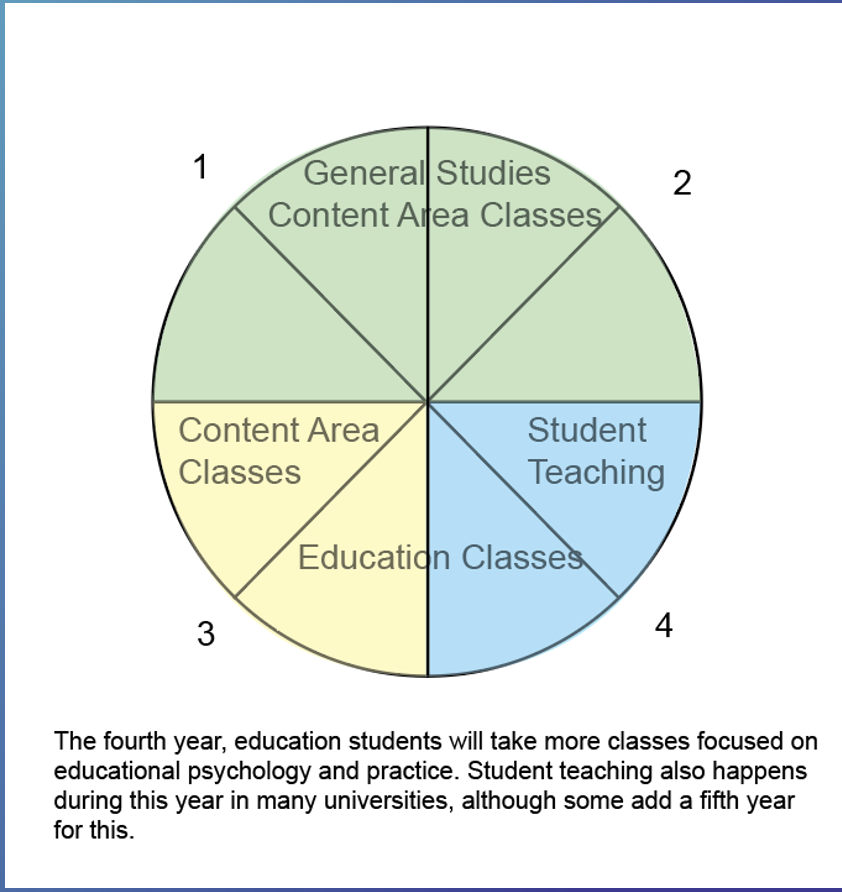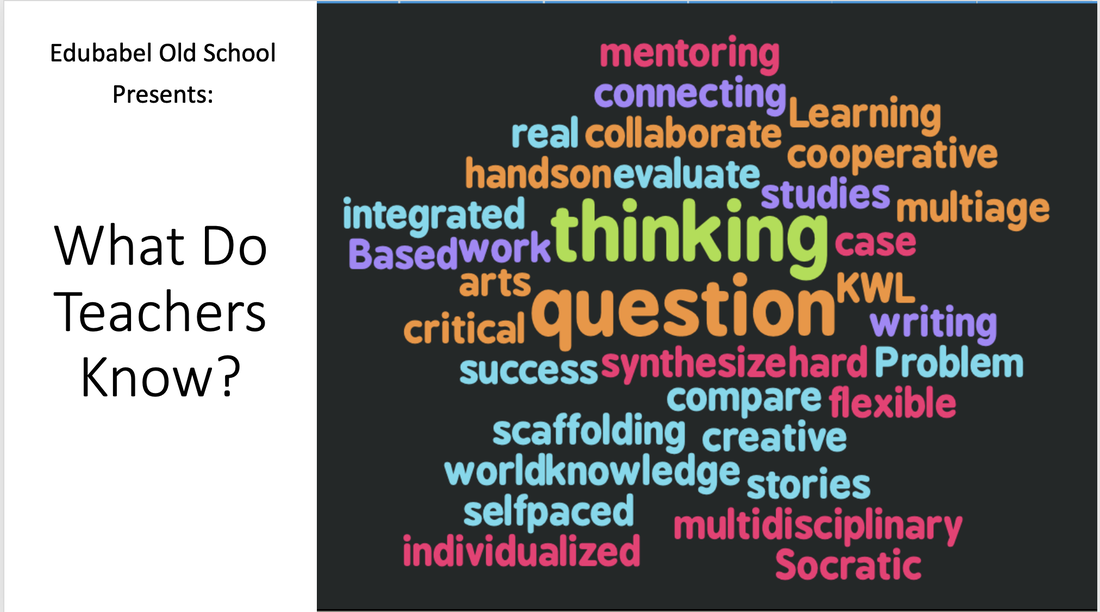Parents new to home-based learning often worry that they won't do a good job of teaching their own children. Part of this worry comes from the common assumption that professional teachers are wiser and better than parents could ever be. Anyone who has checked out some of the teachers on TikTok lately should know better, but we have been conditioned to defer to the "professional" in a whole host of areas.
We assume that classroom teachers are experts who know better about how to educate our children than we do. But what do classroom teachers really know? Let's start with the beginner teachers - newly minted and ready to step into a role of authority and influence over your children. How prepared are they really? Before we delve into this, I would like to point out that every state has its own standards and set of courses designed to prepare individuals to become teachers. K-12 requires certification in the state where the teacher is going to work. Programs differ widely, so I am going to focus on a straw man of sorts - the basic first year teacher. I would encourage you to look into the programs offered in your state to get a better idea about what your local beginner teacher probably knows.
Why start with the beginner teacher? Because parents often feel a lack of confidence, presuming their child's teacher is far above them in understanding how and what to teach. I think most parents are at least as good as a first-year teacher, newly minted from college and stepping into the classroom for the first time. I also think there is nothing these educators know that parents can't learn, given time, support, and access to resources.
Parents may look at the classroom teacher and be intimidated by the four-year bachelor's degree they hold. Let's look at what those four years is likely to be comprised of. Given two semesters per year, with an average of 16 to 18 credits per semester (classes are 3-4 credits each), we are roughly talking about programs of around 128 credits - or 32 classes at 4 credits each. A typical undergrad education student will take 4-5 classes per semester for eight semesters.
These classes are not going to all be education courses.
We assume that classroom teachers are experts who know better about how to educate our children than we do. But what do classroom teachers really know? Let's start with the beginner teachers - newly minted and ready to step into a role of authority and influence over your children. How prepared are they really? Before we delve into this, I would like to point out that every state has its own standards and set of courses designed to prepare individuals to become teachers. K-12 requires certification in the state where the teacher is going to work. Programs differ widely, so I am going to focus on a straw man of sorts - the basic first year teacher. I would encourage you to look into the programs offered in your state to get a better idea about what your local beginner teacher probably knows.
Why start with the beginner teacher? Because parents often feel a lack of confidence, presuming their child's teacher is far above them in understanding how and what to teach. I think most parents are at least as good as a first-year teacher, newly minted from college and stepping into the classroom for the first time. I also think there is nothing these educators know that parents can't learn, given time, support, and access to resources.
Parents may look at the classroom teacher and be intimidated by the four-year bachelor's degree they hold. Let's look at what those four years is likely to be comprised of. Given two semesters per year, with an average of 16 to 18 credits per semester (classes are 3-4 credits each), we are roughly talking about programs of around 128 credits - or 32 classes at 4 credits each. A typical undergrad education student will take 4-5 classes per semester for eight semesters.
These classes are not going to all be education courses.

The diagram represents four years of study, two semesters per year for a total of eight semesters. The first two years are generally given to general studies, humanities, and courses concerning the specialization the teacher is going to follow. Students will take some content area courses linked to their major. Serious courses focusing on educational psychology, pedagogy, educational law, and other topics specific to teaching really don't show up in a lot of programs until the student's third year. The fourth year often devotes at least an entire semester to student teaching, with mentoring and classes in education designed to equip the student for their first year in the classroom. There are programs where students go for five years, with the fifth year being entirely devoted to student teaching.
So, teacher education isn't really a four-year thing. If you whittle away general studies and content area classes, how much time are these students actually spending on classes purely about how to be an effective teacher? How much time is devoted to studying how children learn and how to adapt to serve individual differences among children? How prepared are they to deal with children who learn differently?
Frankly, I've long thought a teaching certificate was just a license to try. Perhaps after many years, continued study, and tons of professional development these newbie teachers will become professionals in the truest sense of the word.
If you are a parent who wants to teach your own child(ren) at home, you may need to overcome being intimidated by classroom teachers. There is nothing they know that you can't learn, and you don't need four years of college to do it, either.
I say this from the point of view of a professional educator who has spent 25 years in K-12 classrooms in both rural and urban settings. As a retired public school teacher, I am concerned about the direction schools have been taking and understand why parents would want to turn to private schooling or home-based approaches. To those parents, I want to say that you can do this. What is needed is support, information, networking, and access to resources. In 2023, millions of children have eschewed public education. Although I made my career as a public school teacher, I get it.
To parents who feel intimidated by the "professionals", I'd like to say that you are at least as good as a first-year teacher. There is nothing they know that you can't learn, and you have the advantage of knowing your children better than anyone. Most parents can create the right kind of environment for their children, and care more about their child's well-being than any stranger could. Home-based learning also offers individualized learning for the children in a way that a large classroom cannot.
There are a number of myths that seem to be part of the common wisdom about why we should only have professionals teach our children. This article is only intended to discuss our conditioning to think that a person certified by the state to teach is the only valid person to instruct our children. There are of course other things parents consider when they weigh the choice between public, private, or home-based schooling. If you are someone who is just starting out, or who is weighing teaching your children yourself, don't let a bachelor's degree and a certificate from the state discourage you.
On the other hand, if you know someone who is thinking about teaching their children themselves and you are doubtful of their choice, I'd invite you to explore this topic more before making judgements about friends or family members who choose this path. Given the proper resources, information, support and encouragement, most parents are capable of providing a good education to their children.

 RSS Feed
RSS Feed